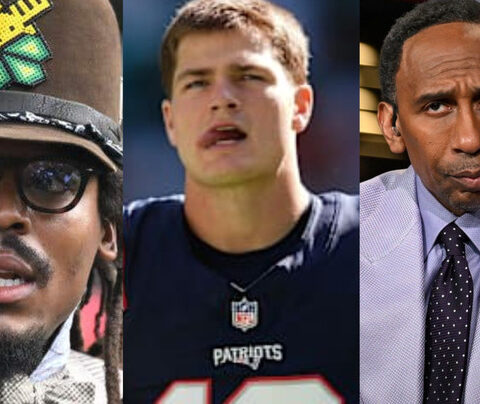I understand the people who do these studies put many hours, days, weeks and years into their work. I am not trying to put down what they do, but you don’t need a study to know there is systematic prejudice not just in the NFL, but almost every industry in America.
I do like that they worked really hard to take away the excuses white people like to make for these unfair hiring practices.
According to new research from professors at Georgetown, George Washington, Emory and Iowa State University, white position coaches and assistants in the NFL are more than twice as likely to be promoted to coordinator than their black counterparts, regardless of their performance, experience or coaching background. One of the study’s co-authors, Christopher I. Rider, says he was surprised by the magnitude of the “white coach effect” among aspiring coordinators, who aren’t subject to the Rooney Rule. “Just focusing at the top is unlikely to effect much change,” says Rider, an assistant professor at Georgetown.
The study’s findings are especially stunning because they account for the reasons typically used to justify the race gap. Rider and his co-authors tracked the careers of more than 1,200 NFL coaches between 1985 and 2012 and tested a number of factors to see whether they could explain why white coaches — who constituted about 72 percent of the pool — were more likely to climb the ranks. One by one, they ticked through possibilities: the performance of each coach’s team or individual unit, his age, his degree and whether he had been part of a championship staff, among other inputs. Because they had so much data, they were able to make apples-to-apples comparisons to see whether the white coach effect disappeared. It did not.
By controlling for this factor, Rider and his co-authors (professors James B. Wade, Anand Swaminathan and Andreas Schwab) could drill down to a simple question: If you take white and black coaches who oversee the same position, are they equally likely to advance?
The answer, according to the data, is no. The white coach is 114 percent more likely to become a coordinator. “Black coaches are less likely to be promoted than white ones, independent of their first position, their current position, their employer, their prior experience, their education and their age,” the authors wrote.
And so we’re left with a simple explanation: discrimination. Rider and his team estimated that it takes nine years before a white coach has a greater than 50 percent chance of becoming coordinator, compared with 14 years for a nonwhite coach. Though the salaries for various positions aren’t public, the professors used back-of-the-envelope math to approximate that, over a 20-year career, a white coach is likely to earn over $20 million more than his nonwhite counterpart.
Holding minorities down financially is just another way to keep us down mentally and where they want us to be which is in poverty and struggling.
The study also points out something I never have thought about. While I am aware that a lot of black quarterbacks are asked to change positions when they get to college, I never correlated that with coaching hires until now.
They also considered which positions the men coached when they entered the league, perhaps the most common justification for the lack of black coaches. According to their research, quarterbacks coaches are more likely to become head coaches than, say, receivers or running backs coaches. And because white players are more likely to play quarterback (a recent study found that black high school quarterbacks are 39 percent more likely to be asked to switch positions when they enter college), they are also more likely to coach the position, and then possibly become coordinators, and so forth. They accrue privilege from the moment they step foot on a field, and it only accumulates as time passes.
This isn’t just an NFL problem, this is a problem in our country. Some white people are always going to be more comfortable hiring people who look like them regardless if the qualifications match up or not.
Even if you have better qualifications than your white counterpart, you are still less likely to get the job if that employer doesn’t feel comfortable with you because of the color of your skin.
It is sad, but true.








